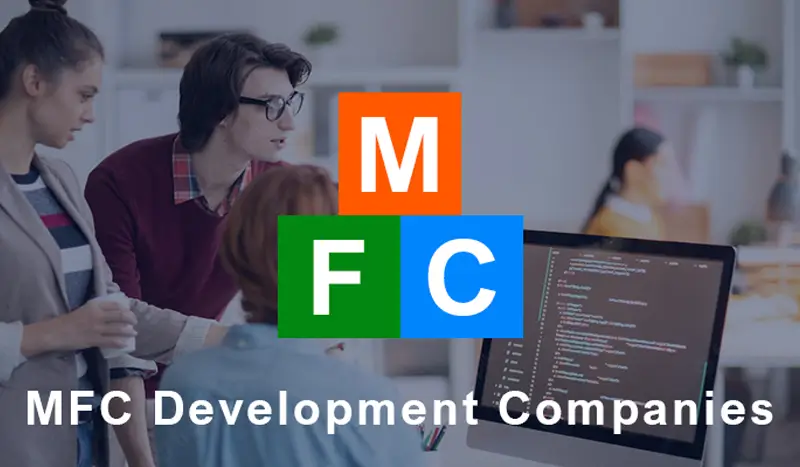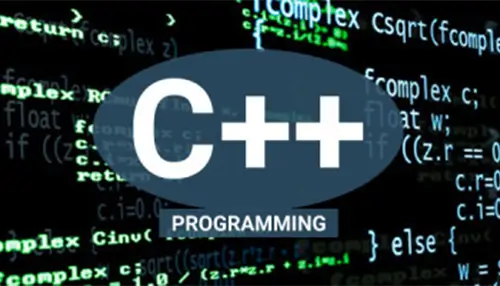MFC stands for Microsoft Foundation Classes, which indicates predefined classes that make developing Windows desktop programs using Visual C++ a breeze. These classes encapsulate the Windows API and provide an object-oriented approach to Windows development. Because much of the MFC code was built before such ideas were firmly established, MFC does not precisely conform to the object-oriented principles of encapsulation and data hiding.
Creating and using MFC objects or objects of classes derived from MFC is part of the process of writing a Windows program. In most cases, you’ll derive your own classes from MFC, with a lot of help from the Visual C++-specific tools that make this simple. Member functions for talking with Windows, processing Windows messages, and sending messages to each other are included in the objects of these MFC-based class types. All of the members of your base classes are passed down to your derived classes.
These inherited routines take care of almost all of the heavy work required for a Windows application to run. To provide the application-specific functionality that you require in your software, just add data and function members to the classes.
MFC Project Template
The following templates in MFC can be used to generate the basic program structure, menus, toolbars, icons, references, and specific statements that are appropriate for the type of project you wish to make.
1. MFC Application
A Microsoft Foundation Class (MFC) application is a Windows executable that is based on the Microsoft Foundation Class (MFC) Library. The MFC Application Wizard is the simplest way to construct an MFC application.
2. MFC ActiveX Control
ActiveX control programs are modular programs that offer a parent application a certain sort of functionality. You may make a control like a button for usage in a dialogue, toolbar, or Web page, for example.
3. MFC DLL
A MFC DLL is a binary file that operates as a shared library of functions that different applications can utilize at the same time. The MFC DLL Wizard is the simplest method to construct an MFC DLL project.
Apart from these, there are some generic templates that can be used by MFC developers to create MFC applications.
1. Empty Project
Projects are the logical containers for all of the components that make up your application. If necessary, you may then add more new or existing projects to the solution.
2. Custom Wizard
When you need to construct a new custom wizard, the Visual C++ Custom Wizard is the tool to utilize. The Bespoke Wizard is the simplest approach to making a custom wizard.
Features of MFC
MFC featured C++ macros for Windows message processing (through Message Maps), exceptions, run-time type identification (RTTI), serialization, and dynamic class creation ever since it was released.
The message-handling macros for MFC were designed to save memory by eliminating the usage of unnecessary virtual tables, as well as to give a more solid framework for different Visual C++-supplied tools to edit and change code without analyzing the entire language.
However, the macros for serialization, exceptions, and RTTI predates are available in Microsoft C++ for quite a long time. These message-handling macros replaced the virtual function mechanism provided by C++.
Skills required for hiring MFC Developers
There are specific technical skills that are required for hiring MFC developers. Such as-
1. Expertise in the C++ programming language and MFC
2. Solid understanding of software architecture and design principles
3. Having good knowledge of SQL Server
4. Understanding of object-oriented design, patterns, and architecture principles as they apply to large-scale systems.
5. Outstanding analytic and software engineering abilities
6. Superior debugging abilities
7. Multi-threading and inter-process communication
Conclusion
The C++ framework released by Microsoft i.e. Microsoft Foundation Classes (MFC), made it reasonably simple to get a Windows application up and running. Like Visual Basic, MFC also came with wrappers for the underlying Windows controls, which made interacting with the control pretty easy. Because of the huge differences between the Visual Basic Forms library and MFC, a Visual Basic control and an MFC control have very little in common.
OdiTek provides reliable software development services with a skilled workforce. Get in touch with us to explore more information on GUI development using MFC at info@oditeksolutions.com.







